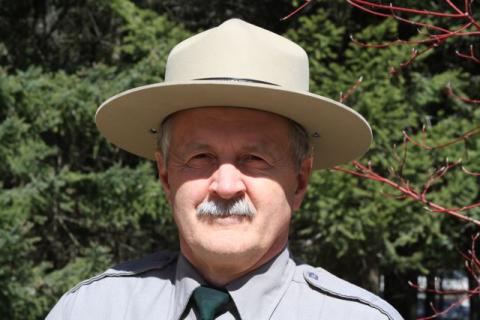It seems we can’t let a month go by without saying something about the road.
Anyway, if you are going to use science to support your position, it’s best to ensure you’re using it properly or you run the risk of annoying an actual scientist. A recent letter to the editor in the Hungry Horse News promoting paving the North Fork Road drew the ire of Jack Potter for editorial misuse of an out-of-context quote. Jack, Glacier Park’s former chief of science and resource management, sent the following response . . .
Dear Editor,
A disturbing trend is the misuse of scientific information through misquoting, taking something out of context, or altering text on the internet and/or in the press. In his letter to the editor, Ray Brown of a “pave the North Fork Road” group in the annual spring offensive, says to support his contention that road dust is polluting the North Fork, thus paving is necessary:
“In addition, according to the 2007-2008 U.S. Geological Survey of water quality in the North Fork of the Flathead River, co-author E. William Schweiger, Ph.D. ecologist, Rocky Mountain Network, National Park Service, wrote in part that nearly all of the major western tributaries of the North Fork have previously been listed on Montana’s 303d list of impaired streams for cold-water fisheries owing to sediment-loading associated with erosion of unpaved roads.”
Ray goes on to say:
“This last finding in interesting in that our own Glacier National Park superintendent, who should have had access to the survey, either never got the memo or disregarded it out of hand. Perhaps the best way for the Park to address an issue like water and air quality along their western boundary is to pretend there is no problem to begin with.”
In fact taken in context Dr. Schweiger and his coauthors say:
“Clear-cut timber harvesting activity was relatively widespread in the western tributaries of the North Fork Basin in Montana from 1960 to 2000 (Gildea and others, 2004). Currently (2011), nonintensive timber harvesting occurs throughout the Flathead National Forest on the western side of the North Fork Basin (Paul Donnellon, Operations – Timber Management Flathead National Forest, written commun., 2011). Additionally, population growth and related construction activities on private land in the western portion of the basin are of concern. Construction of access roads associated with residential development, and subsequent erosion of road material, can be a substantial source of suspended sediment to streams (Ahtiainen and Huttunen, 1999; Gildea and others, 2004). Waste material from forest harvesting and sewage effluent from residential developments can cause an increase in the concentrations of nutrients in receiving streams, resulting in a reduction in biodiversity and loss of species habitat (Harr and Fredriksen, 1988; Zampella, 1994; Carpenter and others, 1998; Hauer and others, 2007). Suspended sediment in spawning areas can cause a reduction in fish embryo survivorship (Confederated Salish and Kootenai Tribes and Montana Fish, Wildlife and Parks, 2004).
Nearly all of the major western tributaries of the North Fork have been previously listed on Montana’s 303(d) list as impaired for cold-water fisheries owing to sediment loading associated with erosion of unpaved roads. Adoption of “Best Management Practices” for timber harvesting and forestry roads in the North Fork Basin, as well as reclamation of clear-cut areas, has greatly reduced the associated effects on water quality (Hauer and others, 2007). As a result, many of the western tributaries have been removed from Montana’s 303(d) list (Gildea and others, 2004). Existing and potential future residential development in the North Fork valley also is of concern. The western portion of the North Fork Basin in Montana has become increasingly popular as a vacation destination, and construction of vacation homes on private land in the North Fork valley has increased by about tenfold over the past 20 years (Hauer and others, 2007). These developments could affect the water quality and aquatic biology of the North Fork.”
The study doesn’t even come close to supporting Ray’s position, nor his fatuous statement about the park Superintendent.
If you are interested in increasing your property values, maybe developing some of those hundreds of lots, or if you are a transplanted suburbanite living in Polebridge and want a smoother, faster commute, or you have a construction company in the North Fork as Ray Brown does, it would be better to be honest about paving. Slow down, drive less. With the uncertainty regarding the federal (dominion) coal blocks in the North Fork that were left out of the BC/Montana energy development moratorium, paving and subsequent development would be a great message to Canada, in addition to a long-term, irreversible, negative impact. The National Park Service is correct in opposing paving.
Full citation of the above article:
From p. 2; Mills, T.J., Schweiger, E.W., Mast, M.A., Clow, D.W., 2012, Hydrologic, water-quality, and biological characteristics of the North Fork Flathead River, Montana, water years 2007–2008: U.S. Geological Survey Scientific Investigations Report 2011–5221, 67 p.
Jack Potter
Columbia Falls, MT
Note: Jack Potter’s letter appeared on the Hungry Horse News web site almost immediately.

